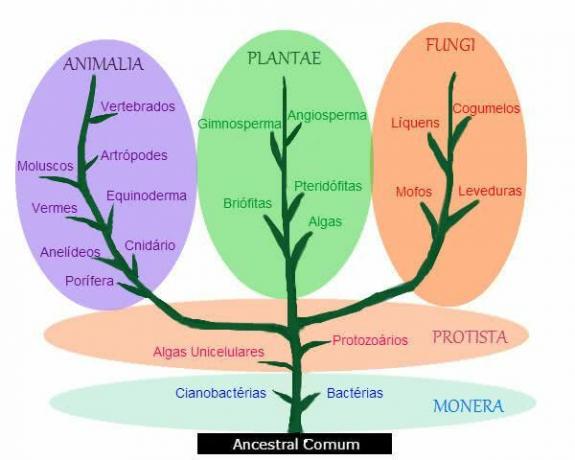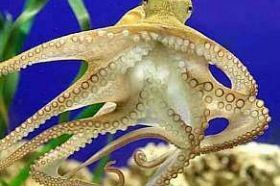Ecology is a word that comes from the greek terms oikos, which means house, and logos, which means study. Analyzing the meaning of the word, we can conclude that Ecology studies the environment where living beings live. However, this science is quite complex, being responsible for also studying the interaction of living beings with each other It is like way they live.
Read too: Levels of organization in Ecology
To fully understand Ecology and its various areas of approach, it is necessary to know some basic concepts.
Do not stop now... There's more after the advertising ;)
Next, we will describe the meaning of the main terms in Ecology, in order to understand it well and realize its importance for biological studies.
Basics of Ecology | |
biomass |
Amount of organic matter from a group of organisms at a specific location. |
Biosphere |
Set of all ecosystems on the planet. |
Food chain |
Linear sequence in which food energy is passed from one trophic level to another. |
Cannibalism |
Ecological relationship where an individual feeds on another of the same species. |
Cologne |
Ecological relationship between individuals of the same species, in which organisms work cooperatively and are anatomically united. |
Commensalism |
Ecological relationship between individuals of different species, in which one organism benefits while the other is neither benefited nor harmed by this interaction. |
abiotic components |
They are lifeless components of an ecosystem, such as water, gases, soil and moisture. |
Biotic components |
They are living components of an ecosystem, such as plants, fungi, protozoa and animals. |
Community |
All living things that live in certain region and period of time. |
climax community |
Climax community is the last stage of ecological succession, in which an ecosystem's diversity peaks. |
pioneer community |
First species to settle in an area. |
ecosystem |
Name given to the set of living beings in an area and all abiotic factors with which these individuals interact. |
Species |
According to the biological concept of species, individuals of the same species are those capable of interbreeding in nature and producing fertile individuals. |
invasive species |
Species that remain outside its natural place of origin. |
Habitat |
Habitat is where a particular species lives. |
Herbivory |
Ecological relationship in which an organism feeds on a vegetable or alga. |
Mutualism |
Ecological relationship between individuals of different species, in which those involved in the relationship are benefited. |
ecological niche |
The way a species lives. It corresponds to all the resources (biotic and abiotic) that are used by a species in its living environment. |
Parasitism |
Ecological relationship between individuals of different species, in which an organism (parasite) takes from another (host) the resources it needs for its survival. |
Population |
Set of individuals of the same species that live in the same area for a certain period of time. |
ecological relationship |
Ecological relationships are the interactions between living beings that live in a given environment. Relationships can be between individuals of the same species or of different species. |
interspecific relationship |
Ecological relationship between individuals of different species. |
Intraspecific relationship |
Ecological relationship between individuals of the same species. |
Society |
Ecological relationship between individuals of the same species, in which they live in a cooperative way for the group's success. |
Ecological succession |
Sequence of gradual changes in an ecosystem's community. |
Primary ecological succession |
Ecological succession that occurs in an area where no community previously existed. |
Secondary ecological succession |
Ecological succession that occurs in a place where a community used to be, but has been eliminated by some disturbance. |
food web |
Several interconnected food chains. |
Read too:Biology concepts that should not be confused in Enem
By Ma. Vanessa Sardinha dos Santos
Would you like to reference this text in a school or academic work? Look:
SANTOS, Vanessa Sardinha dos. "Concepts of Ecology"; Brazil School. Available in: https://brasilescola.uol.com.br/biologia/conceitos-respeito-ecologia.htm. Accessed on June 27, 2021.



